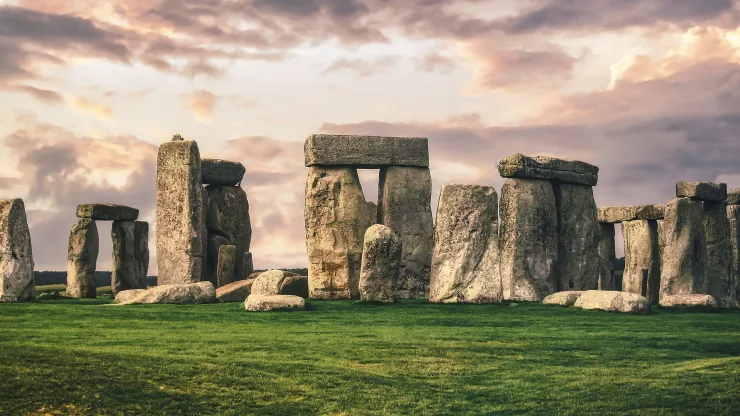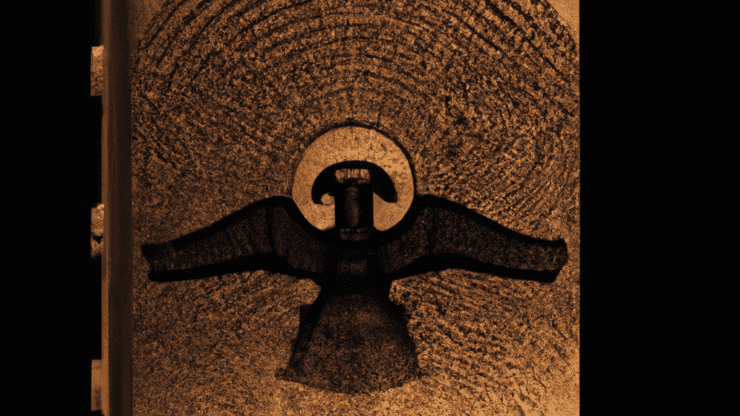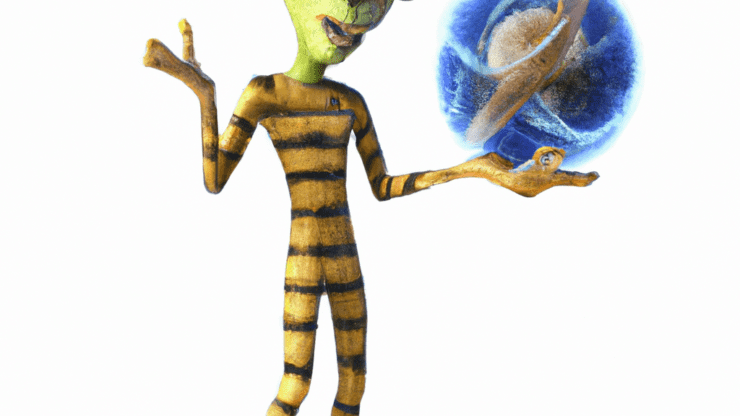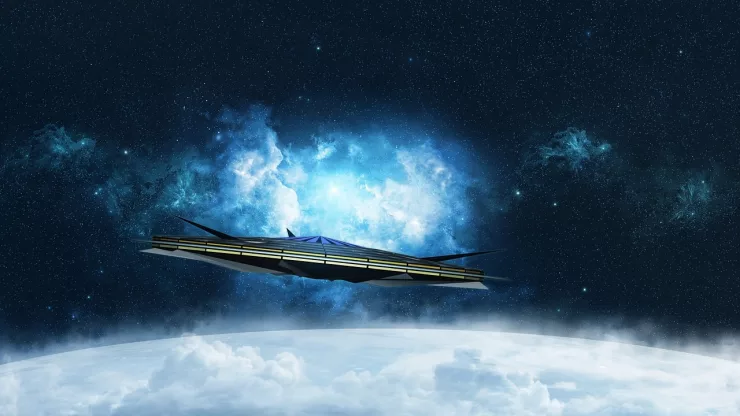Ancient Mythology Unveiled: Alien Encounters Explored
In the vast realm of ancient mythology, tales of gods, heroes, and mystical creatures have captivated human imagination for centuries.
However, hidden within the depths of these ancient stories lies another intriguing aspect – encounters with beings from beyond our world, aliens.
Join us on a journey as we delve into the realms of ancient mythology and explore the fascinating connection between these ancient tales and the phenomena of alien encounters.
Jump to Section
Introduction
For millennia, cultures around the world have passed down myths and legends that speak of otherworldly beings who descended from the heavens. These accounts, often dismissed as mere tales of fiction, have gained renewed interest in recent years as researchers and scholars examine the possibility of ancient civilizations encountering extraterrestrial life.
In this article, we will explore the historical background of ancient mythology, interpretations of these myths, and the presence of alien encounters within them.
Additionally, we will compare these ancient stories with modern UFO sightings, providing a thought-provoking analysis of the similarities and differences between the two.
Historical Background of Ancient Mythology
Origins of Ancient Mythology
- Ancient mythology originates from diverse cultures such as Greek, Egyptian, Norse, and Mesopotamian.
- These myths were an integral part of these cultures, shaping their belief systems, rituals, and societal norms.
- Oral traditions and later written texts served as platforms for passing down these myths from one generation to the next.
Significance of Ancient Mythology
- Explaining Natural Phenomena: Ancient myths often provided explanations for natural events such as the changing of seasons, creation of the world, and celestial phenomena.
- Moral Lessons: Myths conveyed moral and ethical lessons, offering guidance on how to live virtuously and warning against undesirable behaviors.
- Cultural Identity: Mythology played a crucial role in shaping cultural identities, reinforcing shared values, and fostering a sense of unity among communities.
Interpretations of Ancient Mythology
Traditional Interpretations
- Traditional interpretations emphasized the supernatural and religious aspects of mythology.
- Myths were seen as symbolic representations of the gods’ interactions with humanity and the cosmos.
- These interpretations were deeply rooted in the religious beliefs of the societies that created them.
Modern Interpretations
- Modern interpretations take a more multifaceted approach, combining historical, psychological, and anthropological perspectives.
- Myths are viewed as reflections of the collective unconscious, archetypal patterns, and cultural expressions of the human psyche.
- These interpretations seek to understand the deeper meanings and psychological significance of mythological narratives.
Alien Encounters in Ancient Mythology
Ancient Texts Depicting Alien Encounters
- The Epic of Gilgamesh: In this Mesopotamian epic, Gilgamesh encounters the immortal Utnapishtim, who survived a cataclysmic flood aboard a celestial vessel.
- The Mahabharata: An ancient Indian epic, the Mahabharata describes Vimanas, celestial flying chariots, and encounters with beings from other realms.
- The Egyptian Book of the Dead: Texts within this ancient Egyptian funerary guide depict the deceased’s journey through the afterlife, encountering various gods and supernatural beings.
Common Themes in Ancient Mythology
- Beings Descending from the Sky: Many ancient myths describe gods or divine beings descending from the heavens, arriving in celestial chariots or flying vehicles.
- Advanced Technology: Myths often mention mythical objects like sacred weapons, miraculous healing tools, or powerful artifacts that could be attributed to advanced technology.
- Hybrid Beings: Ancient mythology is replete with tales of gods and demi-gods born from unions between humans and celestial beings, suggesting inter-species connections.
Possible Explanations for Alien Encounters
Extraterrestrial Theory
- The Extraterrestrial Theory proposes that ancient mythological encounters were actual interactions with beings from other planets or dimensions.
- Proponents argue that the advanced technology mentioned in myths could be interpreted as descriptions of extraterrestrial spacecraft and technology.
Psychological Theory
- The Psychological Theory suggests that ancient myths originated from the collective human psyche, representing universal archetypes and cultural symbols.
- These encounters may be interpreted as symbolic representations of the human subconscious and the desire to explore the unknown.
Mythological Theory
- The Mythological Theory argues that ancient myths are purely allegorical, serving as cautionary tales or moral lessons for society.
- Alien encounters within myths are seen as symbolic representations of human encounters with the divine or aspects of the self.
Comparisons with Modern UFO Sightings
Similarities between Ancient Mythology and Modern UFO Sightings
- Descriptions of Flying Objects: Both ancient myths and modern UFO sightings often describe flying objects or spacecraft that defy conventional explanations.
- Encounter Narratives: Both ancient and modern accounts involve interactions between humans and beings from beyond our world.
- Global Presence: Alien encounters are not confined to specific cultures or time periods, with stories emerging from various parts of the world throughout history.
Differences between Ancient Mythology and Modern UFO Sightings
- Technological Context: Modern UFO sightings are often viewed through the lens of advanced technology, whereas ancient myths rely on divine or supernatural explanations.
- Cultural Interpretations: Ancient mythology is deeply intertwined with a culture’s religious beliefs, while modern UFO sightings are often examined from a more secular and scientific standpoint.
Conclusion
Throughout history, ancient mythology has fascinated and mystified us with its captivating stories of gods, heroes, and mysterious creatures.
Within these myths, the presence of alien encounters provides a thought-provoking link between ancient tales and the phenomena observed in modern times.
Whether interpreted as interactions with extraterrestrial beings or as symbolic representations of the human psyche, these ancient myths continue to ignite our imagination and curiosity, inviting us to explore the depths of human consciousness and the possibilities of the unknown.
FAQ
Are there any ancient myths that specifically mention encounters with alien beings?
Yes, several ancient myths contain accounts of encounters with beings from beyond our world. Examples include the Epic of Gilgamesh, the Mahabharata, and the Egyptian Book of the Dead.
How do modern interpretations of ancient mythology differ from traditional interpretations?
Modern interpretations of ancient mythology combine historical, psychological, and anthropological perspectives, whereas traditional interpretations often focused solely on the religious and supernatural aspects of the myths.
Do ancient myths provide evidence of extraterrestrial life?
Ancient myths alone do not provide concrete evidence of extraterrestrial life.
However, they offer intriguing narratives that have sparked the imagination and curiosity of researchers seeking to understand the possible connections between ancient encounters and modern UFO sightings.
What are the similarities between ancient myths and modern UFO sightings?
Both ancient myths and modern UFO sightings involve encounters with beings from beyond our world, often described as arriving in flying objects or spacecraft.
Additionally, these accounts transcend cultural boundaries, emerging from various parts of the world throughout history.
How do psychological interpretations explain ancient myths?
Psychological interpretations suggest that ancient myths originated from the collective human psyche, representing universal archetypes and cultural symbols.
Encounters with alien beings may be interpreted as symbolic representations of the human subconscious and the desire to explore the unknown.
Greetings fellow space travelers, I am Draco Blaze, creator of Alienated Media who is passionate about exploring the unknown and writing about my experiences with extraterrestrial life.
My focus is on alien encounters and creating thought-provoking sci-fi short stories that transport readers to new worlds and realities.
Feel free to contact me at [email protected].





